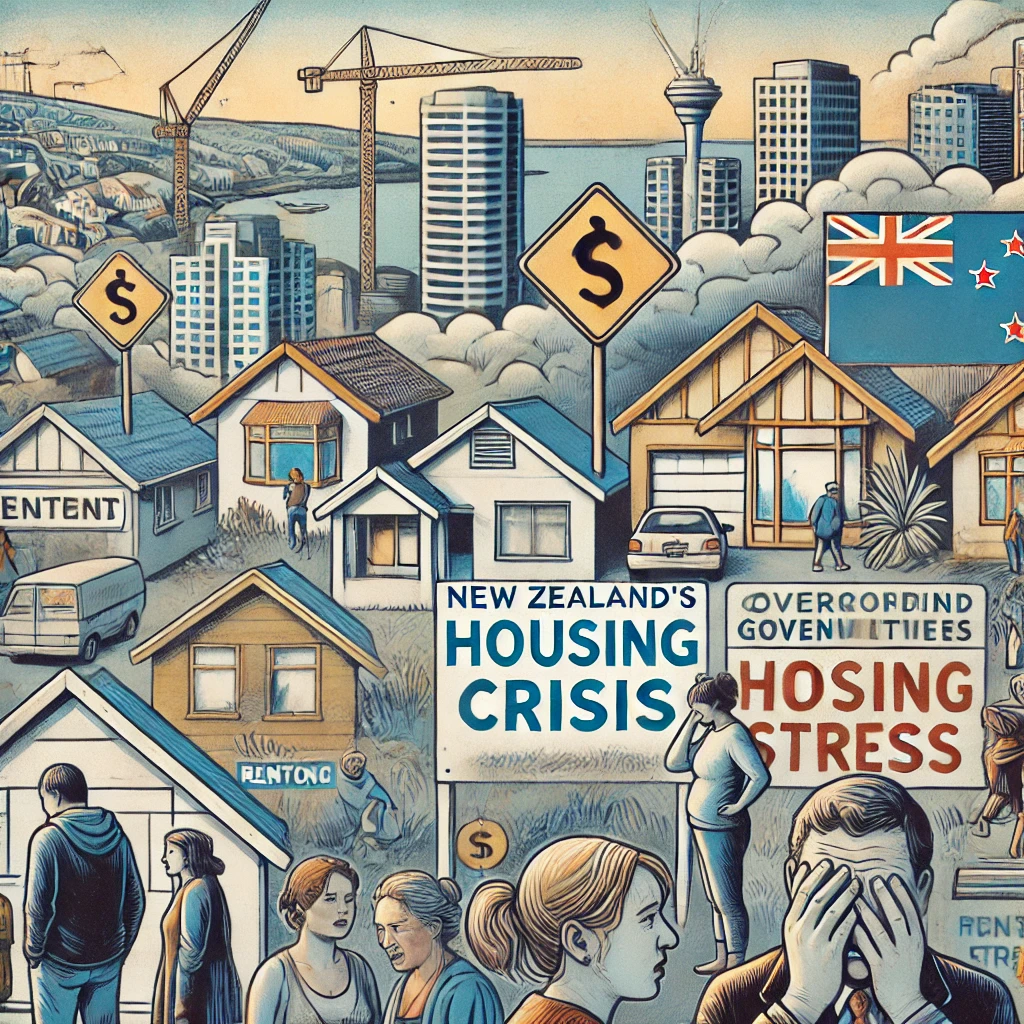New Zealand has long been celebrated for its breathtaking landscapes, quality of life, and strong sense of community. However, alongside these positives lies an ever-worsening problem: the housing crisis. Over the past decade, the country has experienced a dramatic increase in property prices, making homeownership a far-fetched dream for many Kiwis. As housing affordability worsens and rental shortages persist, the situation is putting immense pressure on both homebuyers and renters across the nation.
In this article, we will explore the key factors driving the housing crisis in New Zealand, the impact on different segments of society, and the government’s attempts to address the issue.
The Roots of New Zealand’s Housing Crisis
The housing crisis in New Zealand can be attributed to a variety of complex factors that have evolved over the years. While population growth and demand for housing have surged, the supply has not kept pace, leading to a significant imbalance in the market. Here are some of the main contributors to the crisis:
1. Supply Shortages
One of the leading factors behind the housing crisis is the lack of available housing to meet demand. With an increasing population, driven by immigration and internal migration to urban centers like Auckland, Wellington, and Christchurch, New Zealand’s housing supply has lagged behind the rapid demand. While efforts have been made to accelerate building projects, the process is often hindered by bureaucracy, land availability, and infrastructure challenges.
2. Skyrocketing Property Prices
New Zealand has seen a meteoric rise in property prices, particularly in urban areas. The pandemic further fueled the situation, as low-interest rates and government stimulus packages led to a property-buying frenzy. Many first-time homebuyers were priced out of the market, while property investors benefited from surging house values. As a result, the average property price in cities like Auckland and Wellington is now far beyond what most New Zealanders can afford.
3. Rental Market Struggles
As property prices soared, the rental market also faced significant pressure. Rental costs have escalated alongside house prices, making it difficult for tenants to find affordable, stable housing. In some areas, demand for rentals far exceeds the available supply, leaving many renters in precarious situations, with rental bidding wars and limited options for secure, long-term leases.
4. Speculative Investment and Housing as a Commodity
The housing crisis has also been exacerbated by speculative investment in property. For many years, real estate in New Zealand was seen as a lucrative investment, with investors purchasing homes, often multiple properties, to capitalize on rising values. This has turned housing into a commodity for profit rather than focusing on its role as a basic necessity. As a result, housing affordability has become unattainable for many middle- and low-income families.
The Impact of the Housing Crisis
The effects of the housing crisis ripple across New Zealand society, impacting a wide range of people and industries. Some of the most significant consequences include:
1. First-Time Homebuyers Struggling to Enter the Market
For many young New Zealanders, the dream of homeownership is becoming more elusive by the day. House prices have risen faster than wages, and many first-time buyers struggle to save for a deposit while balancing other financial obligations. Without access to affordable housing options, many are forced to remain in the rental market or live with family for longer periods.
2. Rental Stress and Housing Insecurity
Renters are experiencing unprecedented levels of stress due to rising rents and limited availability. For many households, a significant portion of their income is now being spent on rent, leaving little left for savings or essential expenses. Additionally, the lack of long-term rental security has left many renters vulnerable to sudden evictions or rent hikes, contributing to housing instability.
3. Social Inequality and Homelessness
The housing crisis has deepened social inequality in New Zealand. Low-income families and marginalized communities are disproportionately affected, as they have fewer resources to compete in the housing market. As housing costs continue to climb, many are pushed further to the margins, with some experiencing homelessness. Charities and social services are grappling with increased demand for emergency housing, food, and basic needs.
4. Strain on Mental Health
The ongoing housing crisis has also had a profound impact on mental health. The stress of finding and affording housing has caused anxiety, depression, and other mental health issues to skyrocket among those struggling with housing insecurity. This is particularly true for families with children, who face the pressure of providing a stable home environment in an increasingly volatile housing market.
Government Initiatives to Address the Housing Crisis
Recognizing the severity of the housing crisis, the New Zealand government has introduced several initiatives aimed at improving housing affordability and increasing the supply of homes. While these efforts have had some positive effects, the scale of the crisis requires ongoing and innovative solutions.
1. KiwiBuild
KiwiBuild was launched in 2018 with the aim of building 100,000 affordable homes over the next decade. The program initially faced challenges, including delays in construction and questions about whether the homes were genuinely affordable for most New Zealanders. However, it has been revised in recent years, and the government continues to push forward with the goal of providing more affordable housing for first-time buyers.
2. Increased Public Housing Investment
The government has committed to increasing the number of public housing units available for low-income families. In recent years, investment in state housing has ramped up, with the aim of providing safe and affordable housing for those most in need. While progress has been made, the demand for social housing still far outweighs supply.
3. Housing Infrastructure Fund
The Housing Infrastructure Fund was established to help local governments finance infrastructure projects needed to support new housing developments. This fund addresses the critical issue of enabling land development and housing construction in areas where infrastructure—such as roads, water, and sewage systems—needs to be upgraded.
4. Renter Protections
In response to rising rental costs and housing insecurity, the government has introduced reforms to protect renters. These include measures such as rent freeze periods and limiting rent increases to once a year. While these reforms have provided some relief, there is still more work needed to create a fairer rental market.
Conclusion: What’s Next?
New Zealand’s housing crisis is a multifaceted issue with no easy solutions. The combination of rising property prices, rental shortages, and social inequality has created an environment of housing instability for many Kiwis. While the government has implemented a range of initiatives to address the crisis, it’s clear that more needs to be done to increase housing supply, provide affordable options, and ensure long-term housing security for all.
Collaboration between local governments, the construction industry, and policymakers will be essential in tackling this crisis head-on. Ultimately, addressing the housing crisis is about ensuring that all New Zealanders have access to safe, secure, and affordable homes—a goal that remains crucial for the future of the country.


